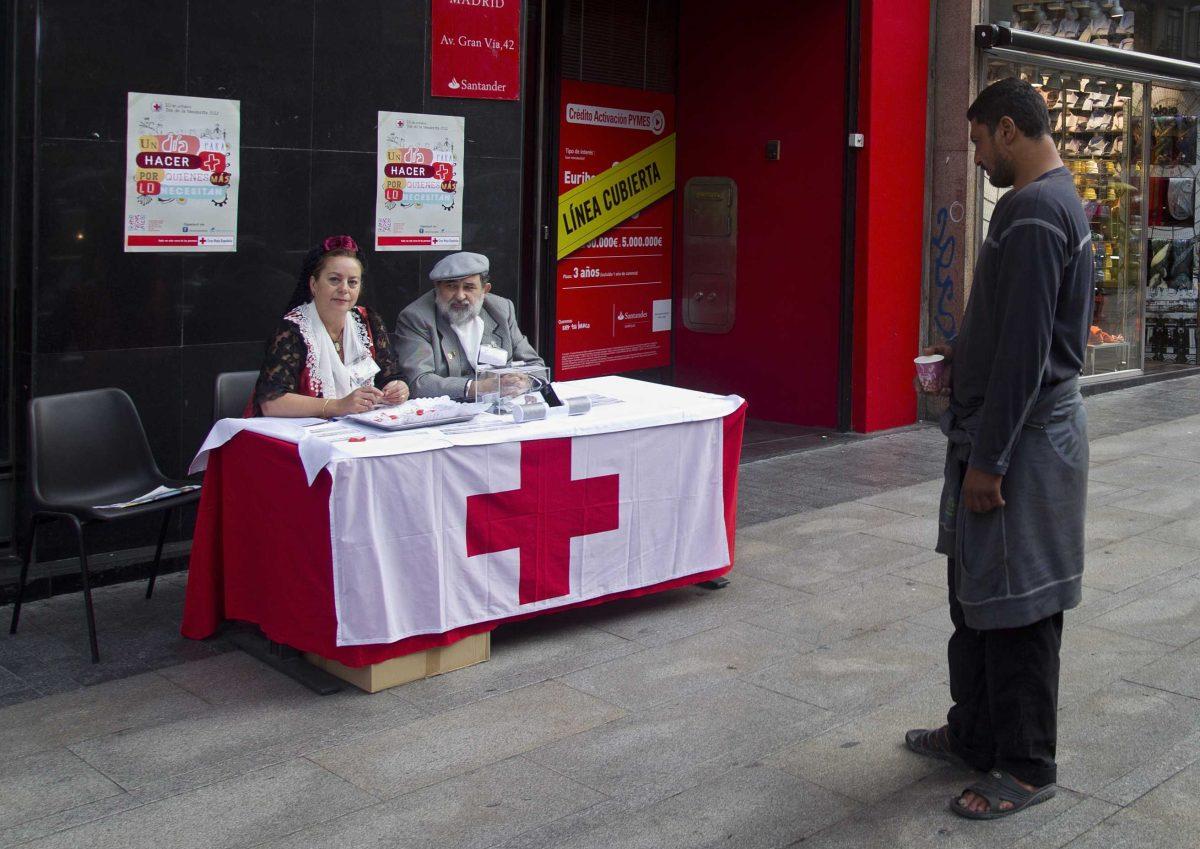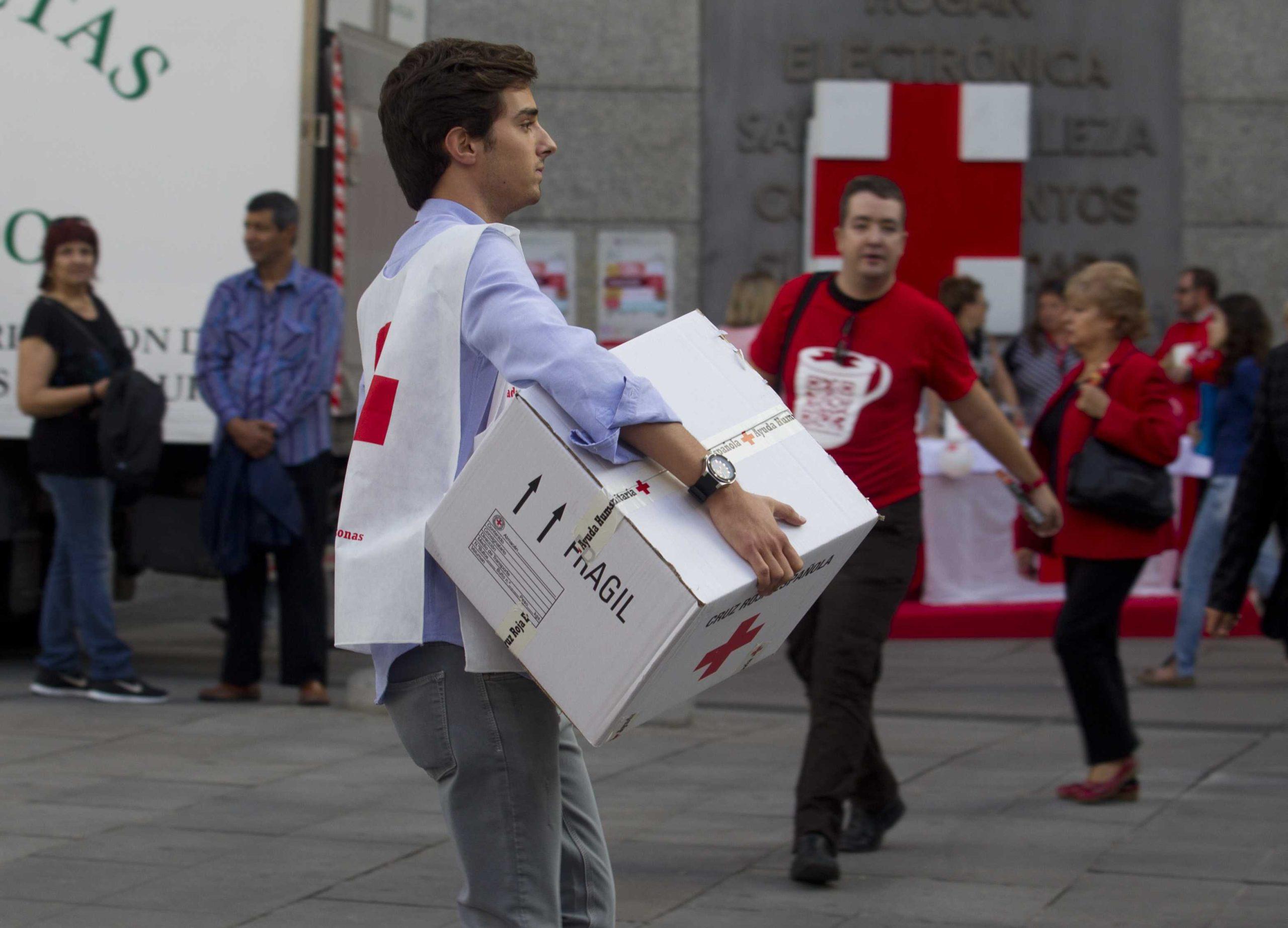MADRID (AP) — The Spanish Red Cross on Wednesday launched its first-ever campaign for donations to help Spaniards hit by economic crisis, in a sign of how needy this nation has become.
The Red Cross and other aid groups say soaring unemployment and government austerity measures are leaving tens of thousands of people in need of food and financial help.
While the Spanish Red Cross does already help people in the country, its fundraising has always been directed at helping poorer nations.
Wednesday’s campaign, titled “Now More than Ever,” aims to collect €30 million ($39 million) over two years to help an extra 300,000 people. The agency helped some 2 million in Spain last year, most of whom needed food and financial assistance because of the crisis.
The agency set up collection points in cities across Spain and thousands of volunteers paced the streets seeking contributions.
Spokesman Jose Javier Sanchez Espinosa said the crisis “is affecting more sectors of society than before” and that now “even people from the middle class who have lost one or two jobs in their households are finding themselves in need of our help.”
On top of this, “25 percent of children are living under the poverty level and old people now have their children and their grandchildren depending on their pensions,” he said.
Spain is in its second recession in three years, and has near 25 percent unemployment.
The government has introduced a series of austerity measures, involving tax hikes, wage freezes and job cuts as well as labor and financial sector reforms. They’re aimed at reducing debt and increasing investor confidence, amid fears that Spain’s troubles could hurt the entire eurozone and force it to ask for a public finances bailout too expensive for the zone to handle.
But the measures have so far had little positive effect on the economy, while causing increased hardship for many people.
“The situation is getting worse and worse,” said Sanchez.
The Red Cross campaign coincides with reports by other groups signaling that increasing unemployment and reductions in social services are pushing more people than ever into seeking social and economic aid.
The Catholic Church charity organization Caritas recently reported that last year it helped more than 1 million people, up from 350,000 in 2007.
“We find in recent years poverty is intensifying, (and) not just affecting more people but hitting those already suffering even harder,” said Caritas’ Francisco Lorenzo.
He described the situation in many households as “chronic,” pointing out that 52 percent of the nearly 5 million people now out of work have been jobless for more than a year, compared to 23 percent in 2007.
He said this did not just imply reduced income, but also lower morale and motivation to look for work.
UNICEF in Spain said Tuesday that latest Eurostat figures show there are 2.3 million children now living below the poverty line in Spain, up by 80,000 from last year.
It said there were now some 760,000 households with children that had no adult working, 46,000 more than last year. Paloma Escudero of UNICEF Spain said it was imperative for the government to take into account the effect its economic measures have on children.






